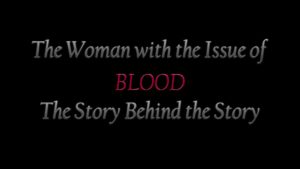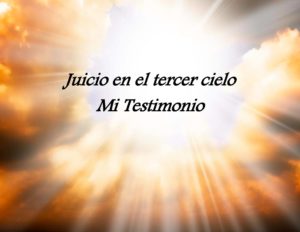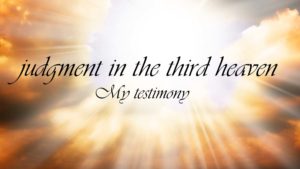The Woman with the Issue of Blood – The Story Behind the Story
 I love it when I find something that I have never heard taught before.
I love it when I find something that I have never heard taught before.
In my studies of Israelite marriage and betrothal customs and laws, I was reading the Kehati Mishnah Commentary of Tractate Ketubot. Tucked away in Chapter 4, Mishnah 9 was a remarkable passage about the rights of a man to divorce his ailing wife and the various opinions of scholars on the subject, most notably Rambam and Ravad, both 12th-century commentators on the Mishnah. The Mishnah (finalized in 200 CE by Yehudah haNasi) contains Sanhedrin rulings and opinions gathered over the course of several centuries related to Torah Law – it is not much different than the formal written proceedings of the United States Supreme Court in that we have basic laws, and it is the job of the Courts to interpret those laws when disputes and cases come before them. The Sanhedrin, the “supreme court” of the Jews, served in that function as outlined in Exodus 16, as well as Deut 16, and 17.
As with the “right to privacy” here in America, which originally meant limitations on the right of the government to illegal search and seizure without probable legal cause, yet was later twisted into the right of a woman to terminate her pregnancy – we also have cases of the Law of God being twisted out of its original purpose of commanding us to love our neighbors.
I believe that the “woman with the issue of blood” mentioned in Matthew 5, Mark 9, and Luke 8 suffered under just this type of twisting of the intention of the Law by men who were very much the products of their time:
Mark 9:25 And there was a woman who had had a discharge of blood for twelve years,26 and who had suffered much under many physicians, and had spent all that she had, and was no better but rather grew worse. 27 She had heard the reports about Jesus and came up behind him in the crowd and touched his garment. 28 For she said, “If I touch even his garments, I will be made well.” 29 And immediately the flow of blood dried up, and she felt in her body that she was healed of her disease.30 And Jesus, perceiving in himself that power had gone out from him, immediately turned about in the crowd and said, “Who touched my garments?” 31 And his disciples said to him, “You see the crowd pressing around you, and yet you say, ‘Who touched me?’” 32 And he looked around to see who had done it. 33 But the woman, knowing what had happened to her, came in fear and trembling and fell down before him and told him the whole truth. 34 And he said to her, “Daughter, your faith has made you well; go in peace, and be healed of your disease.”
Kehati Mishnah Tractate Ketubot 4.9:
“If she was taken captive, he is obligated to ransom her. And if he said, “Here is her get (her divorce document) and her ketubah (the money owed her by contract if divorced), let her ransom herself!” – he is not allowed. If she fell ill, he is responsible for her healing. If he said, “Here is her get and her ketubah, let her heal herself!” – he is allowed.” (Pinchas Kehati, translated by Edward Levin, Mishnah Seder Nashim Vol 1, Ketubot pg 63-4)
Although this may sound confusing, when taken in context with the rest of the Tractate, and especially the whole of Chapter 4, it states that a man was not allowed to refuse to ransom his wife if she was taken captive. He could not simply take the opportunity to get rid of her by saying, “Wow, what a stroke of luck, I’ll just divorce her and give her the 200 dinars (if she was a virgin when he married her, otherwise 100 dinars) and she can ransom herself!” It was a literal court order that no matter what was written in the ketubah, he was in fact required to ransom his wife. In fact, it has been eye-opening learning exactly what was in a ketubah originally – it made divorce prohibitively expensive.
If the wife was sick, however, that was a different situation which was subject to much commentary. Healing was a part of the maintenance a husband owed his wife, in exchange for her acting the part of a wife – but a divorced wife was entitled to no such care from her husband. The question became: when can you divorce a sick wife?
RAMBAM (Maimonides aka Moshe ben Maimon d. 1204) interpreted this ruling as saying that if a woman had been ill for a long time and it was going to be too costly to care for her, a man could, in fact, divorce her if he was willing to give her the get and ketubah – however, in Hilcot Ishut 14.17 he plainly stated that “this is unfitting and improper behavior.” In other words, they may have ruled that this was kosher, but Rambam didn’t approve. As Rambam is the most respected commentator in history, his view is going to reflect the overwhelming majority view among Jews today.
RAVAD (Abraham ben David d. 1198) claimed that the case law applied only to a woman who was not bedridden. A bedridden wife had to be cared for until she healed or died. Therefore, a woman who was sick but not bedridden could be given a divorce and her inheritance money and forced to fend for herself. This interpretation brings us to the woman with the issue of blood.
The woman in the Gospel accounts was obviously not bedridden, as she was able to approach Yeshua and reach out for the hem of his garment. She had also spent “all that she had” in trying to be cured. I submit that this woman, sick for twelve years, had probably been cast off and paid off by her husband once it became clear that her disease would render her unable to provide him with children. A woman who was constantly bleeding, as per Torah Law, could never be approached sexually – it was an abomination (Lev 18:19). Because he could no longer derive that benefit from her, he divorced her and gave her the (probably) 200 dinars owed to her by the ketubah.
As Rambam rightly declared, “unfitting and improper behavior” indeed.
The woman who approached Yeshua committed no sin in doing so, as it was no sin either to be unclean or to render someone else unclean via an issue of blood (excepting in the case of sexual contact) as long as it was not done within a sacred area – in fact, anyone who wished to go to the inner Temple Courts would have had to mikvah and wait until after sundown anyway, and this changed nothing. If I am correct, then this was an ailing woman who had been handed a divorce by her husband, along with her inheritance money, and booted from her home. Her father and brothers owed her nothing once she was married, so she was probably on her own and had spent all of her money in a desperate attempt to be cured. At this point, her life was pretty much hopeless. She could not marry, or earn a living; she had no access to modern medicine and no money left for it anyway – this prophet from Galilee was her only hope in the world. And she believed with all her heart that merely touching his garment would heal her.
So she reached out and touched the hem of his garment – the hem of the firstborn son which traditionally carried the authority of the family. (If you are interested in the ancient context of the hem of the firstborn son, check out www.rootedintorah.com “The Hem and Garment Concept Block”)
I find it interesting, this phrase, “Who touched my garments?”
As a divorced woman, unattached to her father, her brothers, or a husband, she lacked identity in that world. She couldn’t say that she was X, wife of Y or mother of Z. Because of her issue of blood, she had been deprived of her identity as a woman – that of wife and mother – and when the Word says that she “told Him the whole truth,” I am pretty sure that she probably told Him a story akin to the one I just laid out for you.
How does Yeshua respond?
“Daughter, your faith has made you well….”
Did you catch that? He gave her an identity again. Yeshua gave her life back, her health, her identity, and her honor as well. He reminded her (and the entire crowd) that even though her husband had abandoned her, she was still a daughter of Abraham. Yeshua had ushered her back into the realm of the living. Her husband unjustly cast her aside, while the Bridegroom, in an act of compassionate justice, healed her and gave her honor back.


